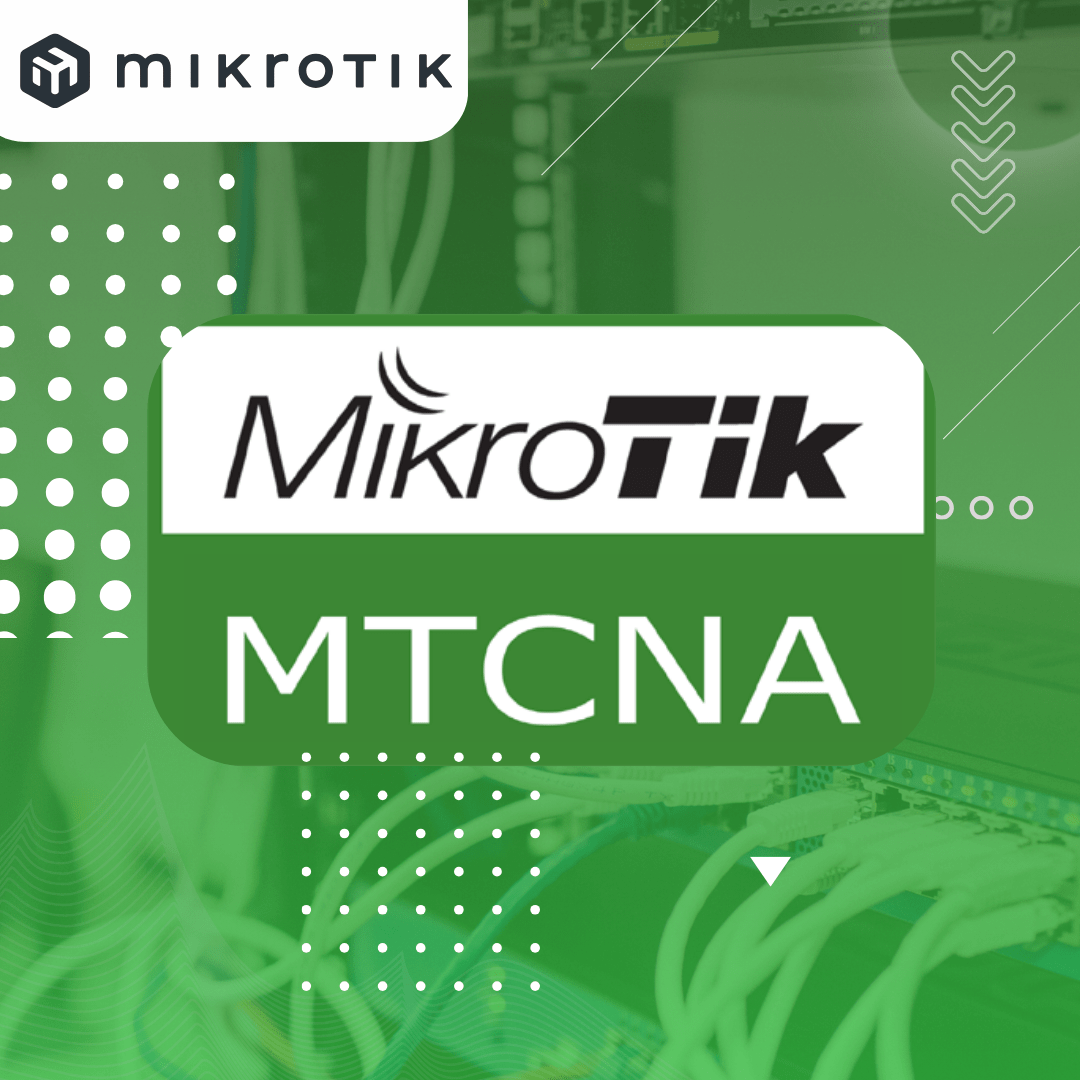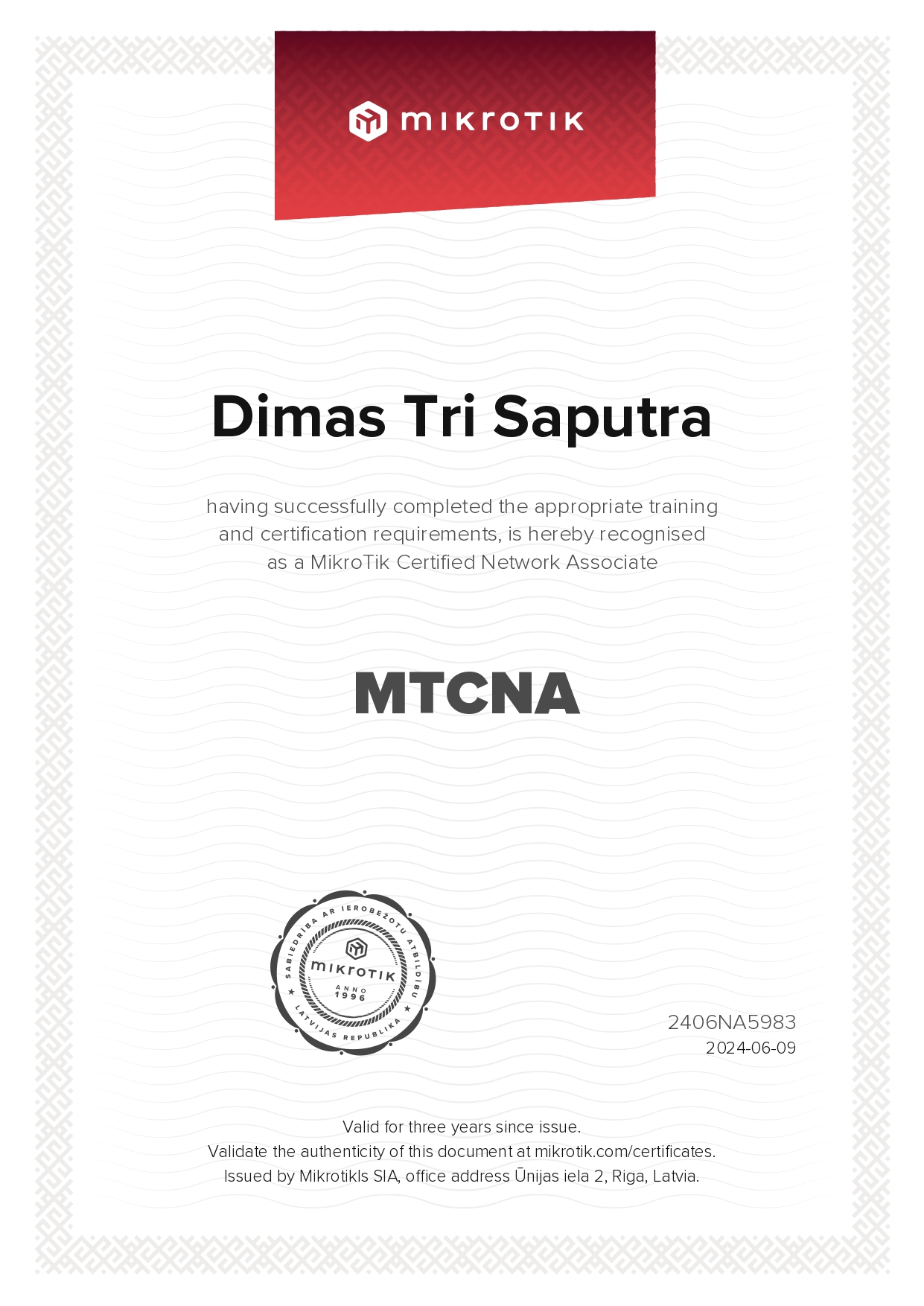MTCNA (Mikrotik Certified Network Associate)
The MikroTik Certified Network Associate (MTCNA) certification is designed for individuals who want to demonstrate proficiency in configuring, managing, and troubleshooting networks using MikroTik RouterOS software and RouterBOARD hardware. Here's an overview of what the MTCNA certification entails:
Basic Networking Concepts: Understanding fundamental networking concepts such as IP addressing, subnetting, routing, switching, VLANs, and OSI model.
MikroTik RouterOS Introduction: Familiarizing with the features and capabilities of MikroTik RouterOS, including its interface, command-line interface (CLI), and graphical user interface (WinBox).
Router Configuration: Configuring MikroTik routers for basic connectivity, including setting IP addresses, configuring interfaces, and establishing simple routing.
Wireless Networking: Configuring wireless interfaces, setting up wireless security (WPA/WPA2, encryption), managing wireless clients, and optimizing wireless performance.
Firewall Configuration: Implementing firewall rules to control traffic flow, filter packets, and secure the network against unauthorized access and attacks.
Network Address Translation (NAT): Configuring NAT to enable communication between private and public IP networks, including source NAT (SNAT) and destination NAT (DNAT).
Quality of Service (QoS): Implementing QoS policies to prioritize traffic and ensure optimal performance for critical applications, such as VoIP or video streaming.
IP Services Configuration: Configuring various IP services such as DHCP server, DNS server, VPN (Virtual Private Network), and PPPoE (Point-to-Point Protocol over Ethernet).
Network Monitoring and Management: Using tools and features for monitoring network traffic, bandwidth usage, and device health, as well as managing network resources and configurations.
Troubleshooting: Identifying and resolving common network issues using troubleshooting techniques, diagnostic tools, and logs provided by MikroTik RouterOS.
To obtain the MTCNA certification, candidates typically need to pass a written exam administered by MikroTik or an authorized training partner. The exam assesses theoretical knowledge and practical skills related to MikroTik RouterOS configuration and network management. Passing the exam demonstrates competence in working with MikroTik equipment and is recognized as a valuable credential for network professionals working with MikroTik technologies.


